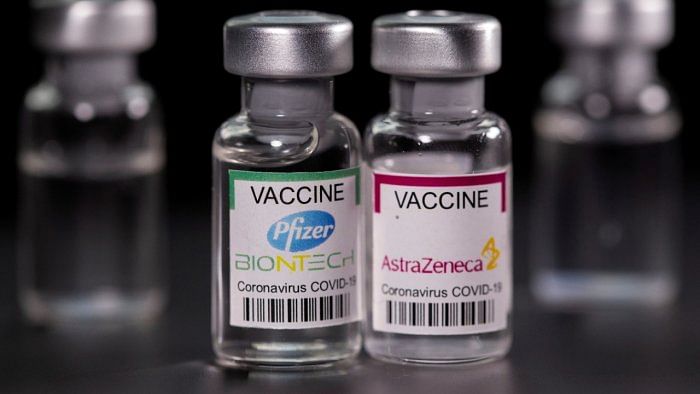
Just a few weeks ago, many nations including India, seemed poised to leave Covid behind.
In the US, President Joe Biden declared the US to be close to independence from the virus. Britons hit the dance floor to celebrate “Freedom Day.” Back home, people flocked to hill stations as states eased Covid-19 restrictions.
Even as nations were ready to be done with Covid, Covid wasn’t done with them. “The virus is going to do what it wants to do,” said Michael Osterholm, director of the Center for Infectious Disease Research and Policy at the University of Minnesota, “and not what we want to do.”
In India, many states such as Kerala, Karnataka and Tamil Nadu are witnessing a surge in Covid-19 cases, mostly driven by the Delta variant. On Thursday, Kerala logged over 22,000 infections even as its neighbours Karnataka and Tamil Nadu recorded a surge in cases after nearly three weeks and over two months respectively, triggering fears of a possible onset of the third Covid-19 pandemic wave in India.
However, studies suggest that vaccines have made a difference — in the places that have deployed them widely. India has so far administered over 45.6 lakh doses of vaccine and reiterated that it would not miss the the end-July target of administering 50 crore Covid vaccine doses.
More than four billion doses of anti-Covid vaccines have been administered around the world, eight months after the vaccination drive started, according to an AFP count.
With many people getting vaccinated, one might wonder if they still need to get tested for Covid-19. The answer is yes, if you've been around someone who has Covid-19. The latest guidance from the US Centers for Disease Control and Prevention says people who are fully vaccinated should get tested three to five days after a potential exposure, even if they don't have symptoms.
Meanwhile, an expert panel of India's central drug authority has recommended granting permission to the Christian Medical College (CMC) in Vellore for conducting a clinical trial of mixing of two Covid-19 vaccines -- Covaxin and Covishield.
A similar trial on mixing a first dose of the Russian-made Sputnik V vaccine with AstraZeneca's vaccine has revealed no serious side effects among volunteers, according to the Russian Direct Investment Fund (RDIF). The trial, however, involved just 50 people.
The Central Drugs Standard Control Organisation (CDSCO) panel has also recommended giving approval to Bharat Biotech for carrying out a study on interchangeability of its Covaxin and the under-trial adenoviral intranasal vaccine candidate BBV154, but asked the Hyderabad-based firm to remove the word "interchangeability" from the study title and submit a revised protocol for approval.
Bharat Biotech expects to receive significant data on its intranasal vaccine for Covid-19 in the next two and a half months, founder Krishna Ella has said. However, Dr Ella did not give a specific timeline for the vaccine whose clinical trials are under way.
A government survey showed that more than 70 per cent of people in eight of India's large states are estimated to have Covid-19 antibodies. The survey, which tested a sample of the population for the presence of Covid-19 antibodies, was conducted in June and July. It showed that two-thirds of India's 1.3 billion people were likely to have been exposed to the virus.